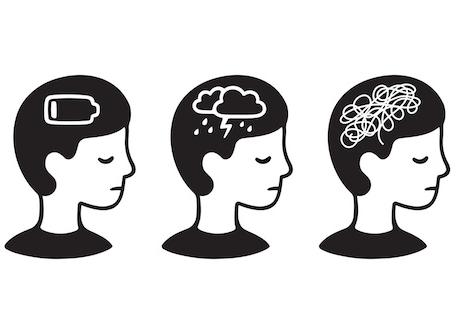
2 minute read
Glorification OF Mental illness
Tik Tok makes a lot of mental health and illness struggles, making them seem trivial and a way to grow your audience.
The glorification of mental illnesses on TikTok has become a troubling trend that has garnered widespread attention. Many users of the social media platform have taken to sharing videos that romanticize and glorify mental illnesses, such as depression, anxiety, and bipolar disorder. These videos often feature users discussing their experiences with mental illness in a way that makes it seem like a badge of honor, rather than a serious condition that requires treatment and support.
Advertisement
One of the reasons why mental illnesses are glorified on TikTok is because of the way that social media platforms are designed to reward attention-seeking behavior. Users who post videos about their mental health struggles often receive a lot of likes, comments, and followers, which can be addictive and reinforce the behavior. Additionally, many people who struggle with mental illness feel isolated and alone, and TikTok provides a sense of community and validation that they might not be able to find elsewhere.
However, the glorification of mental illnesses on TikTok can be harmful in a number of ways. For one thing, it can trivialize the experiences of people who are genuinely struggling with mental illness by making it seem like a trendy or fashionable thing to have. Additionally, it can discourage people from seeking help for their mental health issues, since they might feel like their struggles are not serious enough to warrant professional intervention. Finally, it can create a culture of competition around mental illness, where people are trying to one-up each other with their stories of suffering, rather than working together to support each other and find solutions. Overall, while TikTok can be a powerful tool for raising awareness about mental health issues, it is important to be mindful of the ways in which it can also contribute to the glorification and trivialization of these issues.
There are many resources available for people who are struggling with mental illness. Some of the best places to start include sup -
Counselors

Dillman, Mike (A - Cha)
Holden, Susan (Chb - Garc)
Howe, Kristina (Gard - K)
Afu, Layla (L - Mora)
Klassen, Jane (Morb - Re)
Snook, Christy (Rf - S)
Nelson, Jacqueline (T - Z)
Mental health crisis and suicide hotline hotline- 988 port groups, therapy, and medication. Support groups can be a great way to connect with other people who are going through similar experiences and to share advice and encouragement. Therapy can help you work through your emotions and develop coping strategies for dealing with your symptoms. Medication can also be helpful for some people, especially those who are dealing with severe symptoms or who have not responded well to other treatments.
If you’re not sure where to start, there are many resources available online and in your community that can help. You can look for local support groups or therapy providers, or you can use online resources to connect with other people who are struggling with mental illness. Many organizations also offer free or low-cost resources for people who need help, so don’t be afraid to reach out if you’re struggling. Remember that it’s important to take care of your mental health, and that there is no shame in seeking help when you need it.








